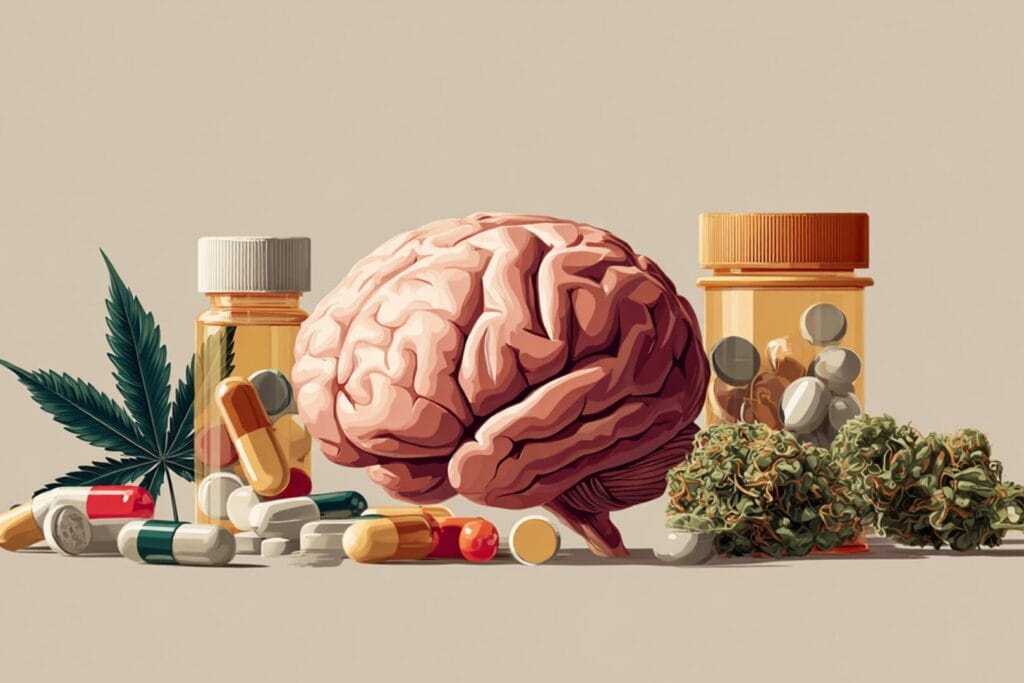What is a Dysfunctional Family?
A dysfunctional family is one where there is constant conflict, immoral conduct, and frequent child neglect or abuse on the part of certain parents, prompting other family members to put up with these behaviors. Dysfunctional families provide an ideal environment for abuse, secrecy, addiction, and denial.1
Examples of Dysfunctional Families
The following are some instances of patterns that typically manifest in families with dysfunction:2
- Family members are strongly impacted by one or both parents’ addictions or compulsive behaviors (e.g., drugs, alcohol, immorality, gambling, overworking, and overeating).
- One or both parents’ primary method of control is the threat or use of physical force. Children may have to watch violence, be made to punish siblings, or experience the terror of violent outbursts.
Common Characteristics
Some of the potential indicators of a dysfunctional family include:
- Perfectionism: Parents frequently end up placing undue pressure on their children to perform, which causes dysfunctional behavior in them. The fear of failure is sparked, and the kids inevitably become perfectionists as adults.
- Lack of Empathy: There is either no empathy or very little empathy in a dysfunctional household. Kids will become self-conscious in the end. There is no such thing as unconditional love. There is no space for error, which produces a cramped environment and makes kids constantly fear failing.
- Control: In other cases, parents who overly control their kids’ lives and stunt their development also fail to reward excellent behavior. Children who experience this control may begin to distrust their skills and develop trust difficulties.
- Excessive Criticism: Children raised in a dysfunctional household get continual criticism for their skills—or lack thereof—and are chastised for all their deeds. Parents are frequently patronizing, nasty, and condescending, which causes children to feel powerless and unbelievable and lowers their self-esteem.
Dysfunctional Family Roles
The four dysfunctional family roles will be detailed below.
Enabler or Caretaker
The caregiver, often referred to as the martyr or enabler, tries to keep everyone in the family satisfied, even if it means ignoring the pressing problems. This position may be played by both kids and adults, which eventually limits the experience of dealing with the main problem since the caregiver keeps picking up the pieces to avoid a tantrum, breakdowns, or rock bottom experience.
By shielding someone from the repercussions of their misconduct, the caretaker also encourages that destructive behavior. It might be a parent whose partner has substance use disorder (SUD), leaving them as the family’s lone caregiver, or it could be a youngster who takes on the role of caregiver for their siblings.
Scapegoat or Troublemaker
The victim character does not act as if everything is fine. The scapegoat does the exact opposite and expresses the family’s desire. Blaming someone else for their problems frequently provides the family a sense of purpose and shields the addicted family member from most of the anger and guilt.
Scapegoats may be considered rebellious and act out in ways that surprise their family, such as being pierced or tattooed, partaking in illegal activities, and hanging out with disobedient friendship groups merely because they can. While girls in this capacity often flee or participate in acts of promiscuity that might result in adolescent pregnancy, males in this role frequently respond violently.
Lost Child or Quiet One
To be safe and without disturbing the (sinking) boat, the lost youngster makes every effort to fade into the backdrop. Abusive homes, they may feel neglected, disregarded, and afraid to bring attention to themselves. Since they aren’t creating any difficulty, parents may utilize them, like the hero role, to demonstrate how well the family is doing.
Mascot
The family’s mascot employs comedy and silliness to deflect attention from weighty matters. They are known as the family’s comedians because they use humor to lessen the stress caused by the addiction. They could feel tremendous pressure to intervene when things get hot and tumultuous. They could feel tremendous pressure to intervene when things get hot and wild.3
When they successfully defuse the situation, it puts even more pressure on them to keep the family’s attention off their problems.
Effects of Living in a Dysfunctional Family
The following are effects of living in a dysfunctional family:
- Social Isolation or Loneliness: Children who grew up in dysfunctional families may lack social skills and want to isolate themselves, leading to loneliness and toxic shame.4
- Development of Behavioral Disorders: Children in dysfunctional families may develop behavioral disorders such as excessive controlling behaviors.
- Being Extremely Self-Critical: In this case, kids become self-conscious and selfish. They may not want to associate with others leading to other selfish attitudes.
- Low Self-Esteem: Low self-esteem is common among adults who grew up in dysfunctional families.
- Development of Mental Health Issues: Growing up in a dysfunctional family may lead to other mental health issues.
Types of Dysfunctional Families
Different variations of dysfunctional families will be discussed further below.
The Substance Abuse Family
A family where one or both parents are caught up with drug or alcohol abuse frequently experiences financial instability and constant parental absence from their children. When the child is hypnotized, they fail to provide for their fundamental necessities, including safe housing, healthy nutrition, clothes, an adequate education, and financial support for medical bills.
The Conflict-Driven Family
A very stressful atmosphere is produced when family members continuously choose conflicts or push each other’s buttons to cause conflict. One family member may respond with even more evil acts if they feel threatened.
The Violent Family
Violent and aggressive family members use the threat of bodily punishment to force their partner or children to do something or maintain control over them. No one should go through the horrifying experience of growing up in a tumultuous or violent home. Not all forms of family violence are physical. It may also refer to any actions that make you uncomfortable, such as verbal, sexual, or psychological assault.
The Emotionally Detached Family
There may be a lack of warmth and affection in specific households. Lack of physical love, such as hugs, handholding, and emotional absence, educate kids to bury their feelings. This makes children repress their emotions and find it challenging to communicate with others, resulting in strained relationships.
Overcoming the Dysfunctional Family Curse
People can overcome the dysfunctional family curse with the following tips:
- Adopt brain healthy habits
- Find a support network
- Work on relationship skills
- Stop being a victim
Additionally, utilize the resources available. Reach out to San Diego Detox for support if you or a loved one struggles with substance abuse; we are here to help you regain autonomy over your life by equipping you with the necessary tools, techniques, and coping mechanisms for long-term sobriety and wellness.
Resources
https://www.verywellmind.com/what-is-a-dysfunctional-family-5194681
https://www.brown.edu/campus-life/support/counseling-and-psychological-services/dysfunctional-family-relationships#:~:text=Types%20Of%20Dysfunctional%20Families&text=One%20or%20both%20parents%20have,the%20primary%20means%20of%20control
https://online.alvernia.edu/infographics/coping-with-addiction-6-dysfunctional-family-roles/
https://addictionblog.org/family/how-do-dysfunctional-families-fuel-addiction/






